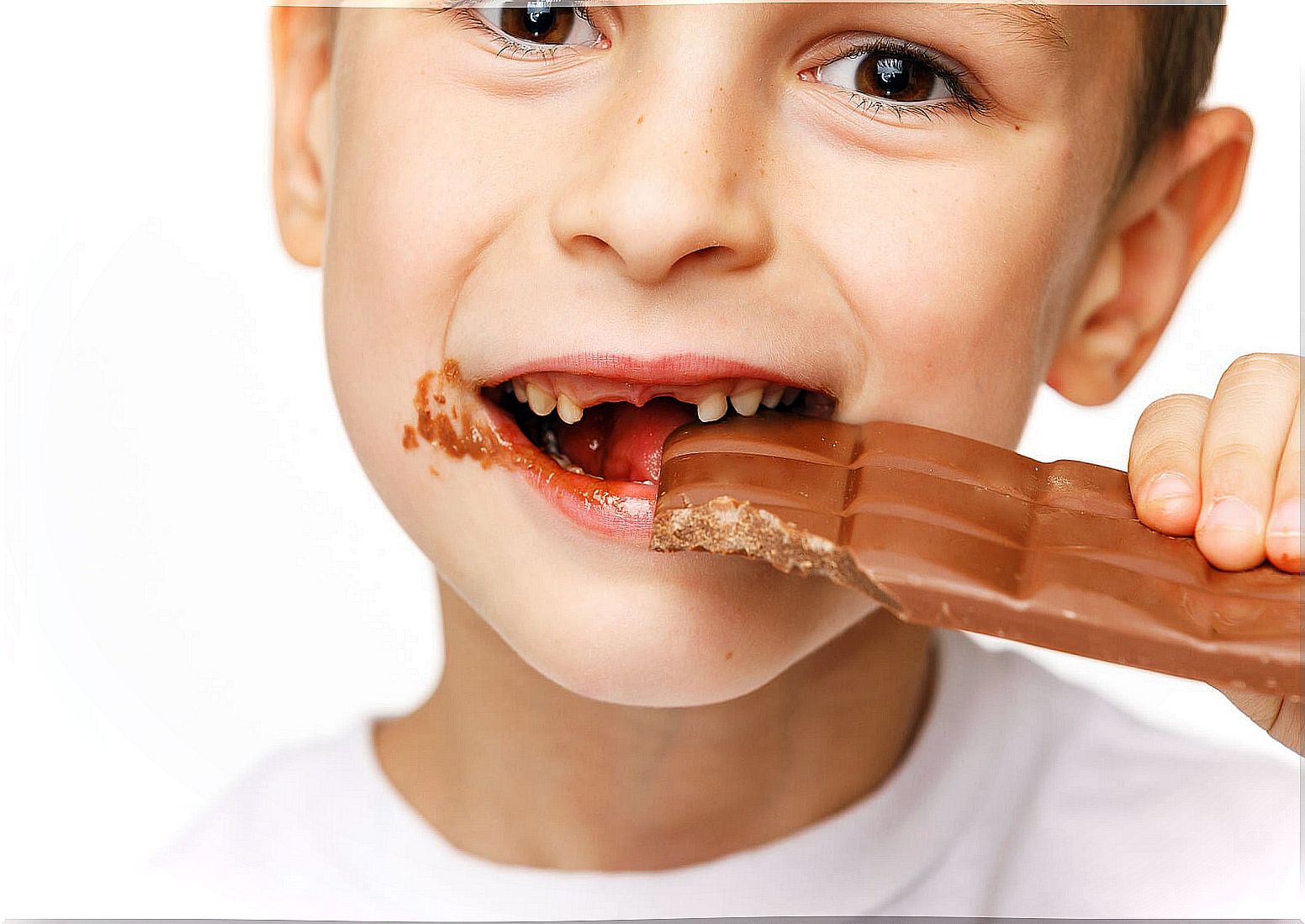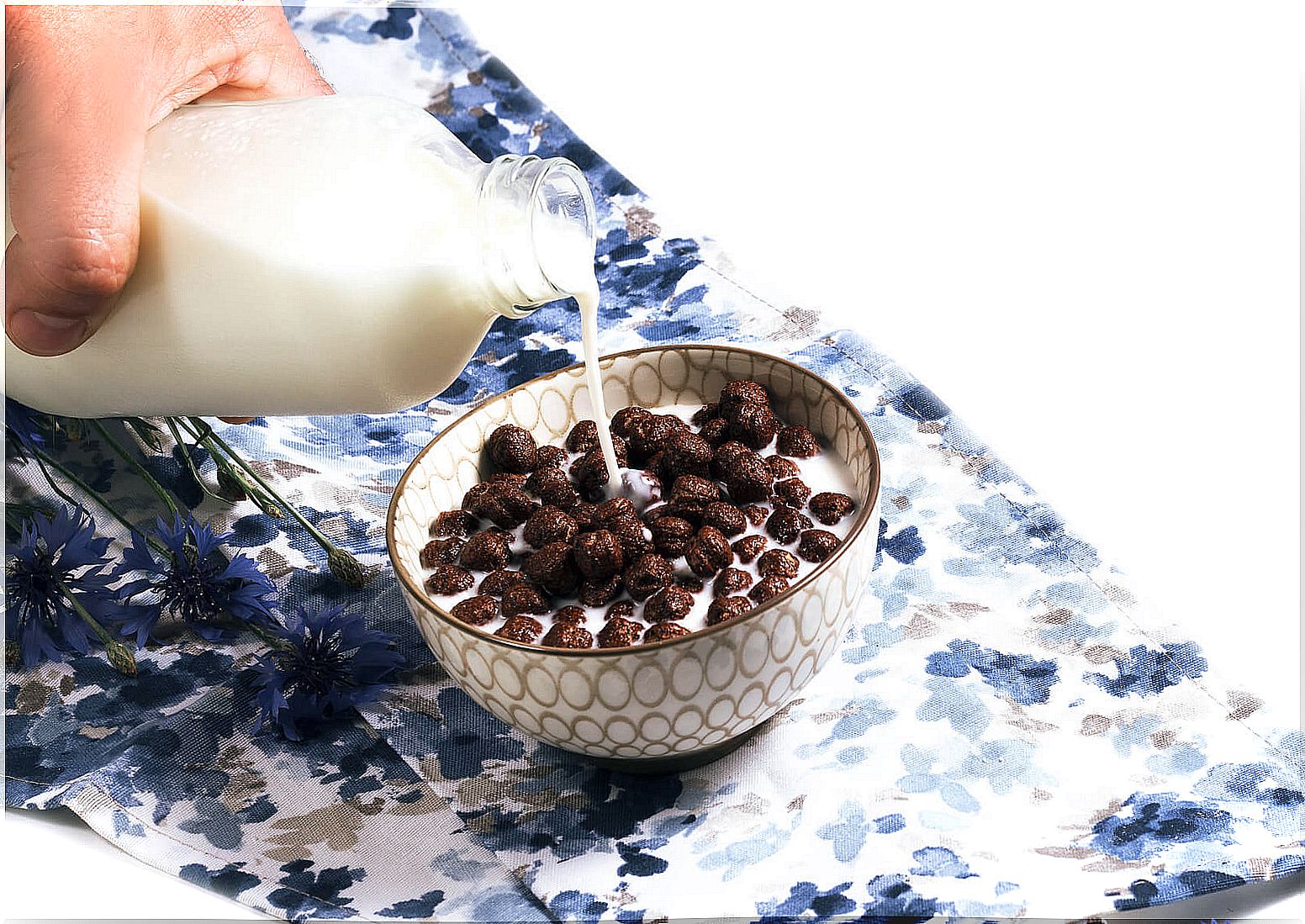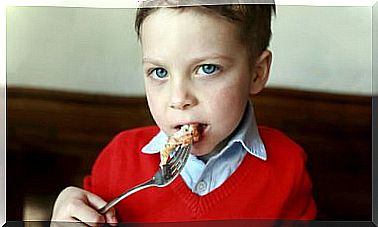Why Should Children Not Abuse Ultra-processed Foods?

Diet in childhood plays a very important role in the development of non-communicable diseases in adulthood. It acts as a prevention, so it is important that you understand why children should not abuse ultra-processed foods.
These are packaged products designed by the food industry based on refined flours, vegetable oils, sugars and fats. They are even characterized by being rich in salt and flavor enhancers. In addition, they usually contain numerous additives to keep them for as long as possible and give them fluffiness and a crunchy texture.
In this way, they activate the brain areas related to pleasure, which generates addiction and the desire to continue eating them. As a consequence, children consume an amount greater than the indicated consumption ration, thus ingesting excess calories and other expendable ingredients. In turn, metabolism and hunger are deregulated.

Why should children not abuse ultra-processed foods?
First, the consumption of ultra-processed foods such as sodas, sweets, breakfast cereals, cookies, and milk shakes has been linked to increased body fat in children.
Therefore, the habitual presence of this type of products in infant food is one of the reasons why overweight and obesity rates have grown in the last 3 decades.
In addition, an increase in total and LDL cholesterol levels in the blood has been observed. Even for every 10% increase in calories from ultra-processed foods, there is an increase of 0.7 centimeters in the abdominal girth.
This implies that they present a greater cardiovascular risk. These consequences are explained by the nutrients they contain, as well as the size of the package and its advertising.
Taking into account the above, it assumes that children have a greater risk of being diagnosed with metabolic syndrome, which is the presence of obesity, diabetes and hypertension together.
Risk of diabetes and ultraprocesses in children
Another reason why children should not eat ultra-processed foods is their predisposition to suffer from type 2 diabetes. As they contain large amounts of added sugars, they generate long-term insulin resistance due to the glucose peak that occurs when eat them.
It is also necessary to mention that after hours hypoglycemia may occur, leading to fatigue and lack of concentration. In turn, accustoming the palate to the continuous sweet taste generates a lack of appetite for natural foods that will be bland.
Is there a relationship between respiratory and overprocessed problems in children?
Although it does not make much sense, we have little evidence to show that ultra-processed drugs pose an increased risk of asthma and wheezing in children.
On the one hand, a higher consumption of ultra-processed foods increases the prevalence of wheezing in Spanish children between 4 and 5 years old by 87%. The only thing that is a cross-sectional study, so it is impossible to establish any type of causality.
On the contrary, a cohort study in the Brazilian population cannot establish any connection between the intake of ultra-processed drugs and the presence of asthma. Therefore, we cannot affirm that the risk of childhood respiratory diseases is greater from eating ultra-processed foods.

Conclusions about why children should not abuse ultra-processed foods
In summary, the habitual presence of ultra-processed foods in children’s lives negatively affects the quality of their diet. From what you can see, they barely reach the daily reference intakes for fiber, vitamins and minerals such as A, C, D, magnesium, calcium, iron and potassium. Instead, they exceed the doses of sugars and fats.
For this reason, enriching them does not contribute to improving it, since the risk of metabolic diseases remains high. In addition, “without” versions have emerged, in which they use fructose or sweeteners that indirectly favor the development of non-alcoholic fatty liver. What they do is alter the diversity of the microbiota.
Also, another drawback is that, when eating them, they leave out healthy foods such as fruits, vegetables, legumes and fish. Therefore, try to be their example by teaching them to eat well and offering them this type of food only on specific occasions. It is the way for them to grow up healthy and with a good quality of life.









